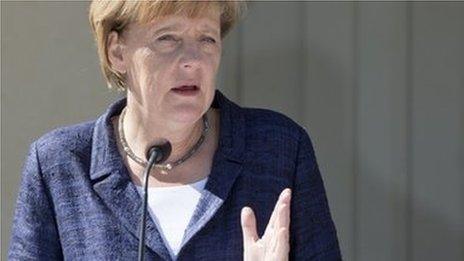Sir John Major backs PM's opposition to Jean-Claude Juncker
- Published
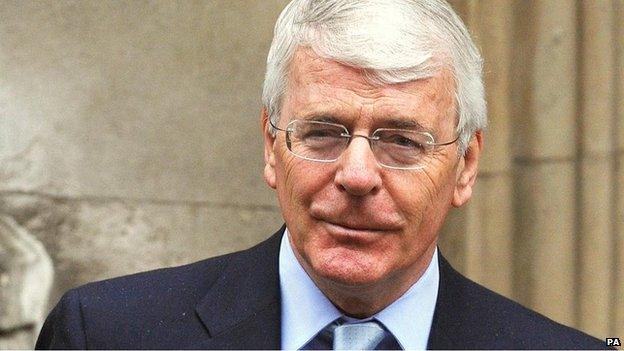
Former Conservative PM Sir John Major said it was conceivable that Europe might elect the wrong candidate
Ex-Luxembourg PM Jean-Claude Juncker is "not the right candidate" to be European Commission president, ex-UK Prime Minister Sir John Major has said.
Sir John told BBC Radio 4's Today programme he backed PM David Cameron's efforts to block the appointment.
Although Mr Juncker had been a "very fine" leader of Luxembourg, "we need a really big political figure at the head of the European Union", Sir John said.
The UK and Germany remain at odds over who will take the job.
Mr Juncker has the backing of German Chancellor Angela Merkel, but current UK Prime Minister Mr Cameron argues that Mr Junker favours an "ever closer union" which is resistant to radical reform of the EU.
Mr Cameron has said his party will renegotiate the UK's relationship with the EU if it wins the 2015 general election before putting the new settlement to voters in a referendum in 2017.
During a pre-recorded interview with the Today programme, Sir John said he did not know whether Mr Juncker would get the job, adding: "I do not think he is the right candidate, but it is conceivable, for the wrong reasons, that Europe might elect the wrong candidate."
Sir John also suggested that, should Mr Juncker become European Commission president, EU leaders might seek to make it up to Mr Cameron.
"The way that Europe often works is that if it has done something that is very much not of interest to a particular country, they often seek, both subliminally or publically, to make that right in some other way.
"The question is, can we get a satisfactory negotiation along the lines Britain has been talking about, to sustain and improve the way Europe works, and remove some of the difficulties we have faced, and my answer to that is categorically, 'yes, we can.'"
He went on: "I genuinely believe that David Cameron will be able to come back with a successful significant reform package, that will enable him to put that before the British nation, and for Britain then to vote in a clear-cut way, to stay as a member of the European Union.
"We are not alone in seeking reforms."
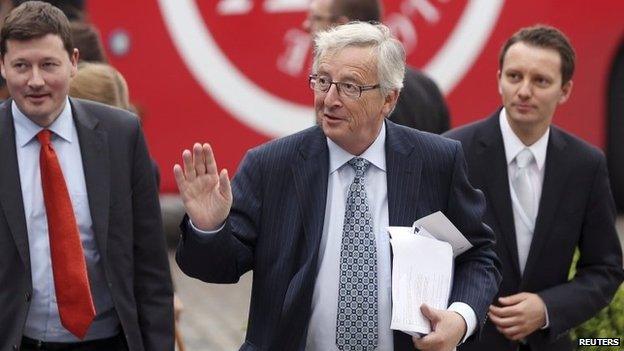
Jean-Claude Juncker is affiliated to the same centre-right grouping of MEPs as Angela Merkel's party
Under current rules, it is for the heads of government of EU member states, who meet in the European Council, to agree on a candidate to head the commission and then submit their proposal to the European Parliament for its approval.
And they now have an explicit requirement to make their proposals after having "taken into account the elections to the European Parliament".
Mr Juncker is the candidate affiliated to the EPP - the centre-right grouping of MEPs.
Although the EPP lost seats at the recent European elections, it remains the largest group in the parliament - but Mr Cameron has suggested that MEPs are seeking to foist their favoured candidate on the leaders of the member states.
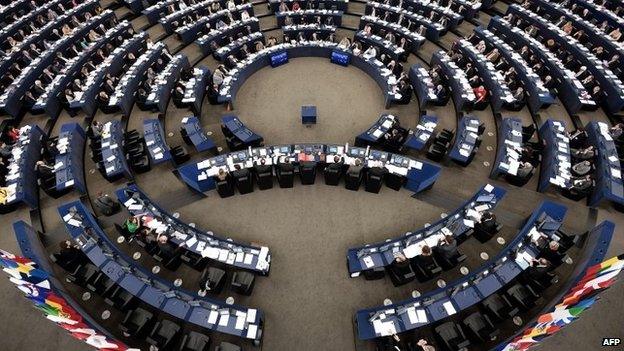
The European Parliament gained new powers in the Lisbon Treaty
Reporters had asked him whether he had admitted defeat in his efforts to block the former Luxembourg's leader's candidacy in light of Mrs Merkel's continued support for him.
Mr Cameron said he would continue to defend the "very important principle" that it should be the leaders of EU member states, not the European Parliament, to propose a candidate for the job.
"I will go on opposing this process of having someone put upon us by the European Parliament... right up to the end," he said.
"There is absolutely no question of changing my view about that."
Both the EPP and the social democrats, the main centre-left group in the European Parliament, have joined forces to back Mr Juncker.
A final decision on who will get the top job at the commission is not expected until EU leaders hold a summit on 26 and 27 June - at the earliest.
The decision will be made by a qualified majority vote, meaning that no single country can veto the choice.
BBC Europe correspondent Chris Morris said Mr Cameron would not have enough support to muster a blocking minority.
- Published17 June 2014
- Published15 July 2014
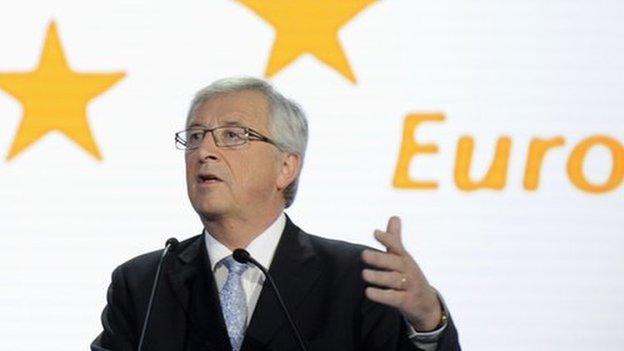
- Published17 June 2014
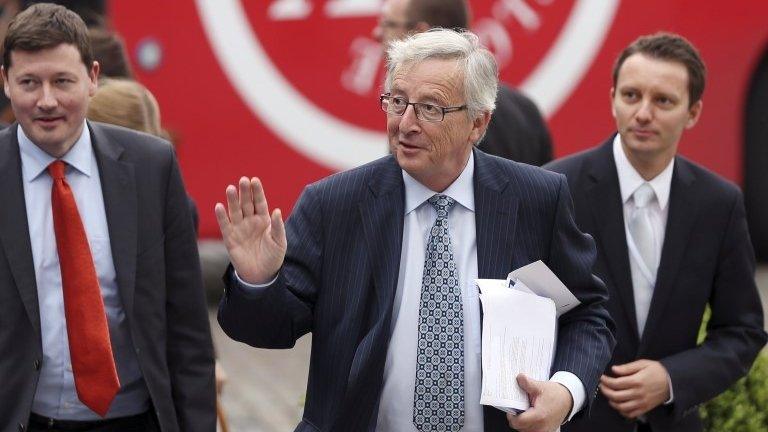
- Published13 June 2014
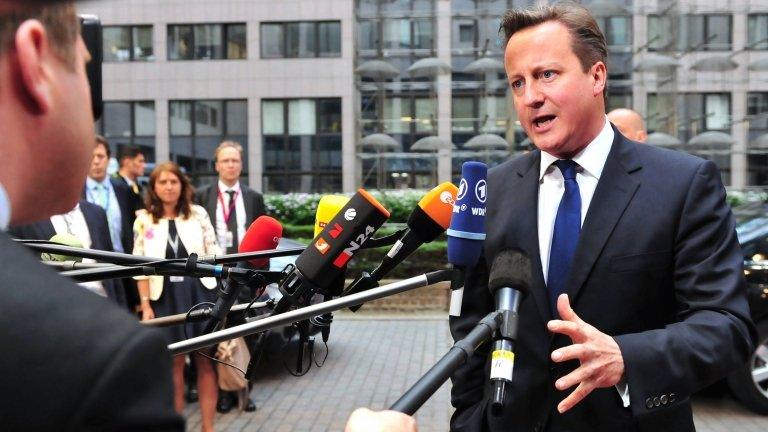
- Published10 June 2014
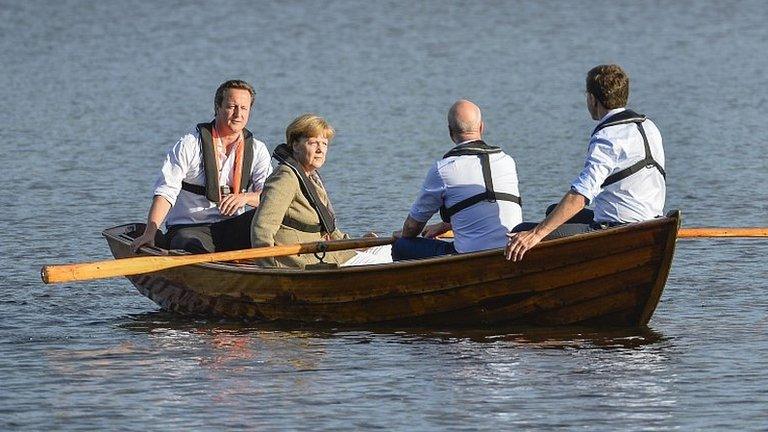
- Published24 June 2014
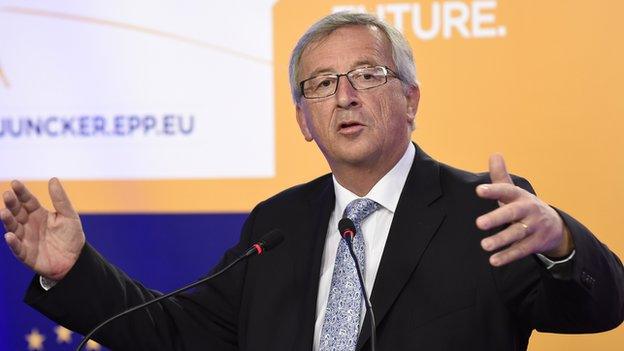
- Published10 June 2014
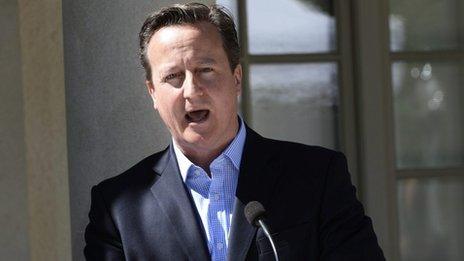
- Published10 June 2014
